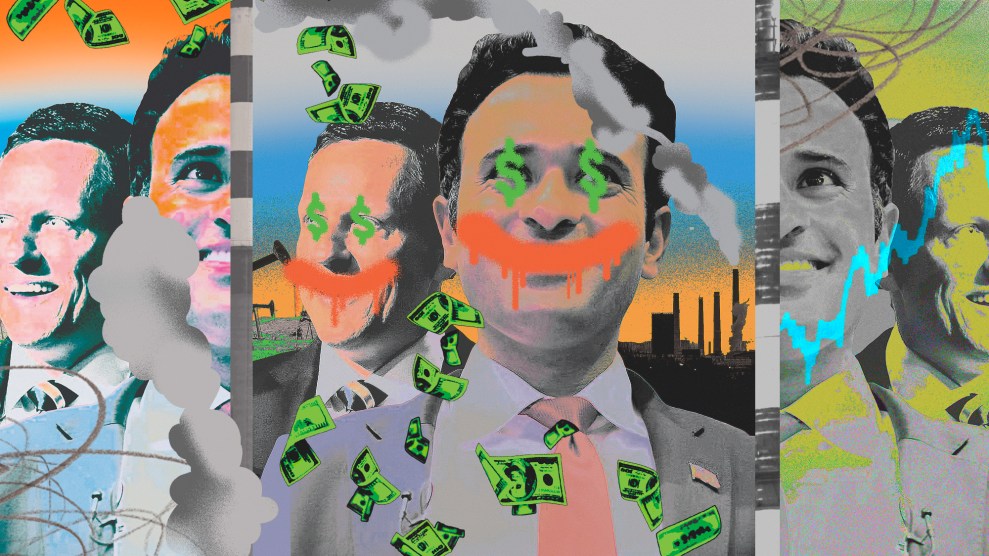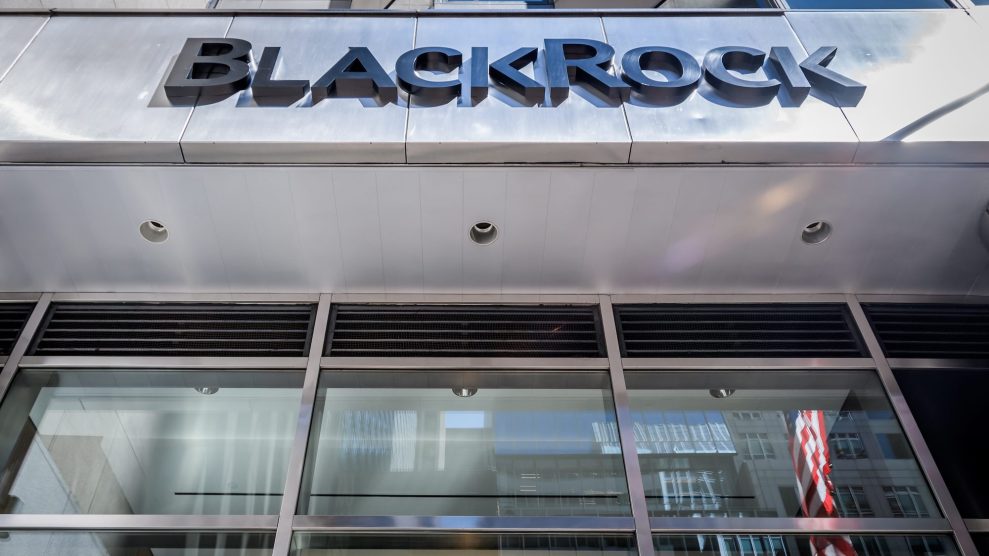
Douglas R. Clifford/Tampa Bay Times/ZUMA
This story was originally published by Inside Climate News and is reproduced here as part of the Climate Desk collaboration.
A class-action lawsuit against American Airlines filed by employees opposed to Environmental, Social, and Governance funds used in their 401(k)s could redefine how employers handle ESG investing and respond to further litigation.
The American Airlines suit, filed in federal court in Texas, is one of the first in the private sector to focus on the use of ESG funds in employees’ retirement accounts. The lawsuit’s lead plaintiff, pilot Bryan Spence, alleges that American mismanaged employees’ retirement savings by investing with fund managers who “pursue leftist political agendas” through ESG strategies, proxy voting and shareholder activism.
The lawsuit, certified as a class action in May, could include as many as 100,000 plan members. American Airlines employees like Spence contribute to their 401(k)s by choosing from a menu of investment options pre-selected by the company. All plan members, whether they decided to invest their individual 401(k) in an ESG plan or not, are included in the class action.
ESG funds that refrain from owning fossil fuel stocks purely due to moral concerns about climate change may run afoul of the law.
The class is inclusive because the lawsuit argues that, by engaging with investment firms that “pursue pervasive ESG agendas,” American Airlines failed its duty to employees. It claims that firms like BlackRock are prioritizing “socio-political outcomes rather than exclusively financial returns” and accuses American Airlines of failing to safeguard its employees’ financial interests by doing business with such investors.
The political battle raging over sustainable investing in the US is changing how fund managers use and promote ESG factors in their work, said Chris Fidler, head of the global industry standards team at the CFA Institute, a nonprofit based in Charlottesville, Virginia, that provides investment professionals with finance education. Efforts to define the term as a moral and political tool rather than a financial one has “made asset managers more reluctant to talk about what they’re doing,” Fiddler said.
BlackRock, American Airlines and Spence’s lawyer, Hacker Stephens LLP, did not immediately respond to requests for comments.
The lawsuit falls under the Employee Retirement Income Security Act (ERISA). How it’s interpreted has come under serious debate in recent years, especially concerning ESG investments.
In 2022, the Biden administration released new rules designed to encourage social and policy goals such as renewable energy by making ESG investing easier. The rules were challenged by 26 Republican state attorneys general, but a district court judge in Texas ultimately upheld Biden’s rule. The Biden regulation itself reversed a Trump-era rule that had aimed to limit ESG investing for retirement plans, given fossil fuel companies’ hostility to ESG.
Despite the back-and-forth, ERISA still dictates that an employer should make decisions based exclusively on financial factors, said Max Schanzenbach, Seigle Family professor of law at Northwestern University. Under the new regulations, moral or political ESG considerations cannot be used by employers to select investment funds.
Only in limited circumstances can non-financial ESG factors be used to pick an investment. A “tiebreaker” rule allows fund managers to use “collateral benefits,” such as greenhouse gas emissions, only when two investments provide equal financial returns otherwise.
The difference between Trump’s 2020 rule and Biden’s 2022 rule is a matter of nuance, Schanzenbach said. “The Biden administration tried to make ESG investing easier, but they ultimately wound up with a very centrist rule. And Trump tried to make it harder and also wound up with a very centrist rule.”
“If funds are using ESG factors to evaluate the financial risks and opportunities of the company, they’re going to continue to do that.”
While both rules were painted as watershed attacks or defenses of ESG, Schanzenbach noted that they both upheld “sole financial interests” as the standard dictating retirement investing for American companies. This means that employers are expected to use a financial analysis, rather than ethical or political concerns, to choose investments.
Under this framework, the American Airlines pilot and his lawyers must demonstrate that the company violated its fiduciary duty—the legal obligation to act in the best interest of its plan members—when it decided to work with BlackRock and similar investment firms. Whether they succeed could have a chilling effect on companies and investment funds’ decisions to engage with, or disclose their use of ESG, Schanzenbach said.
ESG, as it is used in the US, does not refer to a single type of investment, explained Schanzenbach. The distinction between two types of ESG investments will dictate how American Airlines and other employers navigate ERISA rules and litigation.
First, an ESG investing strategy might screen out industries or companies based on ethical or environmental objectives. For example, ESG funds that refrain from owning fossil fuel stocks purely due to moral concerns about climate change are using non-financial factors to make investment decisions—and could violate federal ERISA law, he said.
The other way to use the term ESG refers more specifically to how fund managers or individual investors assess risk and returns. It’s a way to value companies and stocks by looking at how environmental or social shifts could make them more or less valuable down the line. This is what Schanzenbach calls “ESG for a profit.”
Susan Gary, professor emerita at the University of Oregon’s School of Law, said the lawsuit against American Airlines alleges that the company is using ESG for the first purpose: as a tool to achieve political and moral ends. The original complaint cited “leftist activist groups” that it claims sought to advance their “ESG agendas” rather than maximizing profits and the interests of workers. The attempts in various states, including Texas, to block the use of ESG for political reasons echo a common misunderstanding about how investment managers do their jobs, she added.
“It’s much more nuanced, much more complicated than (the lawsuit) is describing,” Gary said of American’s use of ESG funds. Investment managers use ESG information to develop their strategy, she continued. “It’s not that there’s one ESG investment strategy.”
When deciding to invest in a company, plan managers assess a wide range of information.
This is where ESG comes in, said Fidler, who led the development of the Global ESG Disclosure Standards for Investment Products at the CFA Institute. When considering where to put money, plan managers might take into account how environmental, social, and governance issues will impact the value of the stock.
“Not everything about a company is captured in its financial statements or in market data,” he continued. “You can use ESG information as part of a holistic fundamental analysis that looks at all the different risks and opportunities that face a business, and evaluate them through the lens of: Is this a good investment?”
A real estate investor might, for example, consider whether a property is in a floodplain before buying it. Environmental information like flood risks would potentially diminish or ruin the value of the investment down the line. “If funds are using ESG factors to evaluate the financial risks and opportunities of the company, they’re going to continue to do that,” Fidler said.
“This is ideology and American cultural wars brought to the financial markets.”
But rising backlash against sustainability and climate considerations has caused companies to go quiet about this. The behavior is so prevalent that a term has been coined for it: “greenhushing.” BlackRock, the asset manager repeatedly mentioned in the lawsuit, stopped using the term ESG last year. The firm’s CEO Larry Fink says the company maintains its stance on issues such as climate change, but that the term “ESG” had become too political.
Litigation like the American Airlines case might exacerbate the phenomenon and push fund managers to scale down using “ESG” or “sustainable” in names, marketing and advertising. “But I don’t think that means that managers will ignore these sorts of risks or information if it’s helping their analysis,” Fidler added.
Rodrigo Zeidan, a professor of business and finance at NYU Shanghai, agreed. This kind of lawsuit, he added, won’t impact the way fund managers do their jobs. “The environment doesn’t care if the American law decides that American funds cannot call their investments ESG,” he said. “Good fund managers will still try to allocate their portfolio to companies that they believe will survive in the long run.”
Whether fund managers find a new term for ESG or stop calling it anything at all, these lawsuits won’t bring about a revamping of the financial industry, he said.
Nonetheless, litigation risk does have an impact on companies. Zeidan said it has already kept management teams and boards of directors away from ESG initiatives. “Board members will claim that they don’t want to make any decisions that deviate from a very narrow reading of what fiduciary duty means,” he said. “And that this narrow reading is mainly to limit the legal risk.”
The cost of these lawsuits, too, might have a chilling effect on companies’ approach to ESG and sustainability. Employees at companies like Google have recently asked their employers to divest their 401(k)s from fossil fuels, but such a policy could expose companies to similar fiduciary duty lawsuits.
“I think that’s probably part of the litigation strategy, to make it expensive,” Gary said. “Expensive to engage in anything that appears to be ESG investing.”
Much of the politicization of ESG boils down to pensions and government spending, Gary noted. The American Airlines case is not the first time that Texas has been at the forefront of litigation attempting to restrict these two areas. Last year, Texas Attorney General Ken Paxton co-led the multistate lawsuit against the Biden administration’s ERISA rules. The lawsuit is now on appeal in the northern district of Texas court.
In 2021, Texas passed two laws to ban municipalities from doing business with banks that have ESG policies. The legislation was aimed at protecting Texas’ reliance on oil and gas and firearm industries, but research from economists at Wharton and the Federal Reserve Bank of Chicago suggests that Texas cities could end up paying $300 million to $500 million in additional interest as a result.
Public pensions in Texas are already barred from investing in funds run by asset management firms such as BlackRock. Supporters of those bills claim that these firms “boycott” Texas energy companies through their ESG policies, despite the banned funds investing a combined $5 billion in oil and gas, according to a Bloomberg News analysis.
While the lawsuit awaits its next hearings and likely lengthy litigation and potential subsequent appeals, fund managers will continue to do their jobs, Zeidan said.
“This, for me, is immaterial and has no systemic long-run effect. This is ideology and American cultural wars brought to the financial markets.”















